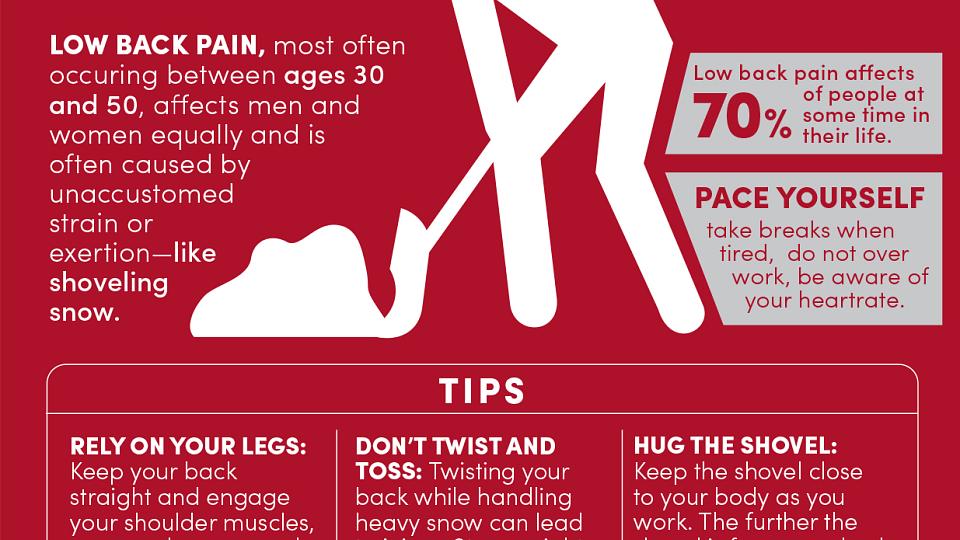
Dr. Miller: Medicine may not be the only nor the best treatment for low back pain. We're going to talk about that next on Scope Radio.
Announcer: Access to our experts with in-depth information about the biggest health issues facing you today. The Specialists with Dr. Tom Miller is on The Scope.
Dr. Miller: Hi, I'm Tom Miller and I'm here with Dr. Rich Kendall. Rich is the Chair of the Physical and Rehabilitative Medicine Department at the University of Utah and we're going to talk about treatment of low back pain with non-medical modalities. Rich, tell us a little bit about physical therapy and how that relates to back pain and how exercise helps people improve their lower back pain. I think it's an area that's underutilized.
Exercise for Back Pain
Dr. Kendall: Many people with back pain, just exercising on a daily basis will really reduce the intensity of their back pain quite a bit. Many studies have shown that back pain and exercise go well together. It can help with sleep, it can decrease back pain, lessen medication use, and even avoid surgery.
Stretching
Dr. Miller: Rich, tell me a little about certain exercise modalities or maybe they're called stretching modalities, something like Pilates. I know that a lot of people say that Pilates is good, it improves core strength, but that may also translate into improved back strength and health.
Dr. Kendall: Well, Pilates is a very good exercise, but really there is no evidence that one form of exercise is any better than another form. Core-specific exercises, Pilates, Yoga
Dr. Miller: Yoga.
Weight Lifting
Dr. Kendall: A gym program where you lift weights. Really all of them can work in decreasing back pain. Now sometimes if an athlete is already doing a very rigorous program, they may need physical therapy with targeted exercises. But, in general, most people just sticking with a generalized exercise program and whatever they like. The key is doing something they like so you'll do it all the time.
Benefits of Working with a Physical Therapist
Dr. Miller: One of the things that I struggled with is I didn't always have enough training in what physical therapists do. Do you find referring to a physical therapist to be helpful in cases where you're going to prescribe exercise therapy for people with back pain?
Dr. Kendall: I think for most people, starting with a physical therapist is a great idea. They're going to demonstrate the exercises. The therapist will watch that they can do the exercises correctly, that they have good form while doing the exercises, and also be able to look at other associated joints whether there's hip tightness or leg tightness, arm or neck tightness to try to work on some of those adjacent areas as well. But a lot of times, we'll start with a therapy and even then sometimes transfer over to a personal trainer.
Dr. Miller: Do you find that some patients are skeptical of exercises therapy? That they might seek medication instead? And how do you deal with that?
Dr. Kendall: A lot of people certainly are skeptical that exercise will do that. Nobody likes to exercise. Years ago, it was probably one of the hardest things to convince patients of. Now that everybody has to pay $35 or $50 a copay to go see a physical therapist, with two visits to a physical therapist you've paid two months of a gym membership. I can really convince people to exercise a little bit more. But many of the studies actually are showing people with degenerate discs, arthritis of the back, exercise is probably the best thing, even as well or better than surgery.
How is Exercise More Helpful than Pain Medication?
Dr. Miller: Rich, why is exercise beneficial in treating back pain compared to taking analgesics like Aspirin or Ibuprofen? How does exercise help in the long run?
Dr. Kendall: Well, there are a couple of reasons. First, you're strengthening your muscles. You really support the spine a lot better and with any arthritic joint, you strengthen the muscles around it, you load the joint a lot less and that triggers less pain from the joint. The second is you will get some change in the neuro firing patterns and how your brain perceives that pain. So overall your pain will be noticed less by your brain.
Dr. Miller: Could you explain why patients might be skeptical about utilizing exercise therapy or physical therapy to improve their condition?
Benefits of a Healthy Exercise Routine
Dr. Kendall: Well, one of the biggest things is that people already hurt doing very little activity and they think that doing more activity is going to hurt even more. So that is one thing that we have to overcome. The other is that they've probably been to therapy before or they've tried an exercise program and it may have helped them briefly, but then as soon as they stopped their pain came back. So they think it might be something more serious. Dr. Miller: So the key thing then is, number one, making sure they receive the proper instruction on the types of exercises that'll help strengthen the back and reduce the pain, but also encouraging them to keep up the exercise routine over time.
Dr. Kendall: That's true. Keeping it up is key and I always tell patients you can take a day here or a day there essentially Christmas and New Year's Day off, but every other day you should be doing some kind of activity. Whether it's five minutes or 10 minutes, that's great, but some kind of activity.
Dr. Miller: So, Rich, for patients that have mild to moderate back pain and who may not feel like they need to go in and see a physician, is there a website or a place they could go to find out what types of exercise might benefit them? Or do you even advise that?
Dr. Kendall: I think searching the web is a very difficult thing. If you type in low back exercises you get about 5 million websites to look at on Google. Knowing which one is correct, knowing which one is somebody just in their living room with no certification thinking that they're an exercise fitness guru is difficult. Really, I think that most people, unless you have an exercise background, seeing a therapist just one or two times, or even going and seeing a personal trainer at the gym it'd be a great place to start.
Announcer: TheScopeRadio.com is the University of Utah Health Sciences radio. If you like what you heard be sure to get our latest content by following us on Facebook. Just click on the Facebook icon at TheScopeRadio.com.


